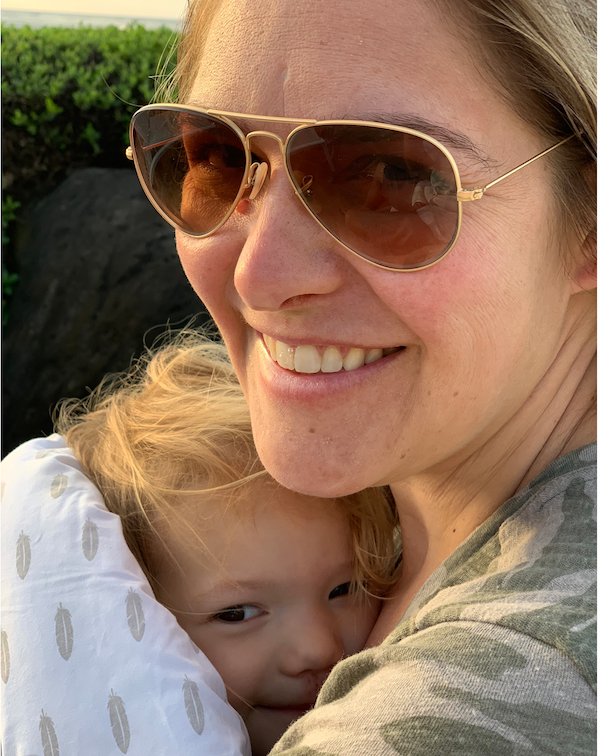
If you’re like me, you’ve had a lot of time with your children this past year (too much, maybe). But, also like me, I’m going to guess most of that time was not spent in deep, meaningful engagement with them. Sure, you were sharing the same physical space, but you weren’t spending every waking hour on memory making moments. More like do the dishes, fold the laundry, break up a sibling squabble, help with virtual learning, log onto another zoom call, repeat. Still, with more time on our hands, we definitely had more opportunities to make special connections with the people who matter most to us.
As the world opens up, and we all emerge into a freer, vaccinated world this summer and fall, our schedules are returning to normal, too. Our days are filling with more variety, and our calendars are filling with outside obligations and to-dos. That coronavirus pandemic offered very few silver linings, but one was that our lives were less hectic and less cluttered. We had more time for special time with our little ones.
Children, especially from birth to 5 years of age, need security and consistency to form self-esteem, develop resilience, and develop lasting healthy relationships with their caregivers. To do that, they need our time and attention. They need to know that in this rapid-fire, whirlwind world, they have a special place in our hierarchies that no one else can take. Prioritizing and supporting our kids means remembering they are among the people we love most.
I spend a lot of time coaching moms that when they thrive, their kids thrive. Taking time away from our kids to work, or just to take care of ourselves, is in no way selfish. Our kids don’t need our attention 24-7. That said, our kids may not need us to spend our every waking hour with them, but they do need us to spend a substantial amount of time with them. A few moments here and there are just not going to cut it. They don’t deserve our leftovers.
Kenneth R. Ginsburg, MD, MS Ed, FAAP, got real on this subject when he wrote in Building Resilience in Children and Teens: Giving Kids Roots and Wings, “In our overscheduled lives, we often talk of making quality time for our children. I agree—a few moments, when parents are truly present and undistracted, can be most meaningful. At the expense of saying something unpopular, though, quantity matters too. All parents are stretched to fulfill multiple obligations, but we need to make available as much time as possible for our children. To some extent, the quality of our time with them is influenced by the quantity of that time. I’m not suggesting that you quit your day job. I am saying that there will be more opportunities to listen if we spend more time with our children. We won’t always be there for the crises or heart-to-heart moments, but the more time we spend with them, the more likely we will be available to listen during a significant moment.”
When we do prioritize moments to intentionally focus on our relationships with our children, practicing special time is one of the best ways we can make the most of it. Special time can mean setting aside 20 minutes per day to remove distractions, get on the floor or sit at the table with our kids, and play. We let our kids lead us, refrain from using any judgment statements (good or bad), and spend time doing what they want to do. As opposed to a time-out, when you intentionally remove your attention for bad behavior, it’s a time-in with your child, when you intentionally focus on your child and your child alone.
This doesn’t have to be complicated. When your child is a baby, this may be as simple as you getting on your hands and knees next to his activity mat. When he’s a toddler, it can literally mean playing with toys on the floor. Set a timer, turn your phone off—make this time only about you and your child. As your children get older, floor time can morph into mommy-son dates to the coffee shop or mommy-daughter dates to the pool. When we remove the distractions of the outside world and focus just on our children for discrete periods of time they can count on, we build a foundation of memories and mindfulness, ultimately building resilience and connection.
Special Time Ideas by Age
For Preschool Kids
- Coloring, drawing, painting
- Trip to the local park
- Backyard picnic or tea party
- Reading
- Sidewalk chalk
- Vegetable garden planting
- Pretend beauty shop
- Water play with measuring cups and bowls
- Indoor/outdoor scavenger hunt
For Elementary School Kids
- Pottery painting, drawing, painting
- Bike ride around the neighborhood
- Gardening
- Sunset watching, stargazing
- Board games, puzzles, card games
- Backyard camping trip with s’mores and tent • Daisy chains at the local park
- Baking or cooking together
- Reading at home or the local bookstore
- Home karaoke or a dance party
For Preadolescents & Adolescents
- Coffee shop breakfast, lunch, or dinner date
- Drive to the beach, woods, or lake for overnight or day trip
- Local hike or run
- Online or in-person class together
- Volunteer together
- Reading together
- Board games, card games
- Baking or cooking together
Life gets busy. Our schedules, especially in an (almost) post-pandemic world, are most definitely going to fill up. That’s a great thing. As moms, though, it’s important to leave space for who and what are most important to us as we navigate a freer, safer, new world, including our kids and ourselves.
This is a modified excerpt from The Working Mom Blueprint: Winning at Parenting Without Losing Yourself (American Academy of Pediatrics, May 2021).
